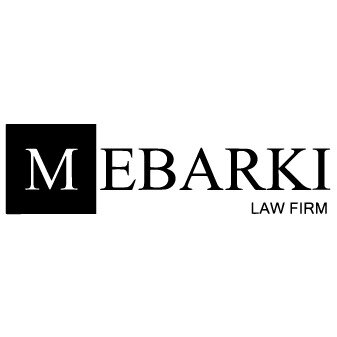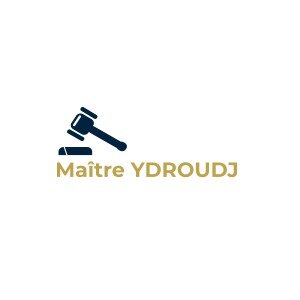Best Financial Services Regulation Lawyers in Algeria
Share your needs with us, get contacted by law firms.
Free. Takes 2 min.
Or refine your search by selecting a city:
List of the best lawyers in Algeria
About Financial Services Regulation Law in Algeria
Financial Services Regulation in Algeria is governed by a combination of national laws and regulations that aim to ensure the stability and integrity of financial markets, protect consumers, and prevent financial crimes. The central regulatory body overseeing the financial industry is the Bank of Algeria, which sets the framework for banking operations, licensing, and supervision. Other financial sectors such as insurance, securities, and investment are also regulated under specific Algerian laws to enhance transparency and mitigate risks.
Why You May Need a Lawyer
There are several scenarios where you might require legal assistance concerning Financial Services Regulation in Algeria. Businesses may need advice on compliance with regulatory frameworks and guidance in obtaining necessary licenses. Individuals may seek a lawyer for issues related to consumer protection, like unfair banking practices or investment fraud. Legal expertise is also crucial when dealing with complex financial litigation, navigating regulatory investigations, or ensuring adherence to anti-money laundering laws.
Local Laws Overview
Algerian financial regulation comprises various key legislations. The Banking Law governs banks' establishment, operation, and closure. The Consumer Credit Law ensures transparency and fairness in loan practices. The Investment Code provides guidelines for domestic and foreign investments. Also, Algeria adheres to international agreements on anti-money laundering and counter-terrorism financing, requiring robust compliance programs from financial institutions.
Frequently Asked Questions
What is the role of the Bank of Algeria?
The Bank of Algeria is the primary regulatory body responsible for implementing monetary policy, regulating and supervising the banking sector, and maintaining financial stability.
Do I need a license to operate a financial service in Algeria?
Yes, operating a financial service in Algeria typically requires obtaining a license from the appropriate regulatory authority, such as the Bank of Algeria for banking services.
What are the penalties for non-compliance with financial regulations?
Penalties for non-compliance can include fines, suspension or revocation of licenses, and legal action. The severity depends on the nature and impact of the violation.
How does Algeria prevent money laundering?
Algeria has implemented stringent anti-money laundering laws that require financial institutions to establish compliance programs, report suspicious activities, and conduct customer due diligence.
Is consumer protection applicable to financial services in Algeria?
Yes, Algerian laws protect consumers against unfair practices in financial services, ensuring transparent terms, fair treatment, and recourse in cases of disputes.
Can foreign investors operate in Algerian financial markets?
Foreign investors can participate in Algerian financial markets, subject to specific regulations under the Investment Code and obtaining necessary approvals.
Who regulates insurance services in Algeria?
Insurance services in Algeria are regulated under specific laws that outline the establishment, functioning, and control of insurance companies to protect consumers and maintain market integrity.
What steps should a company take to comply with financial regulations?
Companies should establish comprehensive compliance programs, conduct regular audits, engage in continuous staff training, and consult legal experts to ensure adherence to relevant regulations.
How are disputes in financial services resolved?
Disputes can be resolved through negotiation, arbitration, or litigation, depending on the parties' preference and the nature of the dispute. Legal counsel can guide navigating these processes effectively.
What are the reporting requirements for financial institutions?
Financial institutions are required to regularly report financial data, any suspicious transactions, and any changes in their operations to the regulatory bodies to ensure transparency and compliance.
Additional Resources
For those seeking more information or assistance, several resources are available, including the Bank of Algeria for regulatory guidelines, the Algerian Association of Banks and Financial Institutions for industry-specific insights, and the Ministry of Finance for policy and economic affairs. Legal associations and consulting firms specializing in financial services can also offer expert advice.
Next Steps
If you need legal assistance in Financial Services Regulation, consider consulting with a lawyer specializing in Algerian financial law. Begin by researching legal firms with a track record in financial compliance and consumer protection. Arrange consultations to discuss your concerns and understand the legal strategies they can offer. It's essential to choose an advisor who understands the local regulatory landscape and possesses the expertise to navigate it effectively.
Lawzana helps you find the best lawyers and law firms in Algeria through a curated and pre-screened list of qualified legal professionals. Our platform offers rankings and detailed profiles of attorneys and law firms, allowing you to compare based on practice areas, including Financial Services Regulation, experience, and client feedback.
Each profile includes a description of the firm's areas of practice, client reviews, team members and partners, year of establishment, spoken languages, office locations, contact information, social media presence, and any published articles or resources. Most firms on our platform speak English and are experienced in both local and international legal matters.
Get a quote from top-rated law firms in Algeria — quickly, securely, and without unnecessary hassle.
Disclaimer:
The information provided on this page is for general informational purposes only and does not constitute legal advice. While we strive to ensure the accuracy and relevance of the content, legal information may change over time, and interpretations of the law can vary. You should always consult with a qualified legal professional for advice specific to your situation.
We disclaim all liability for actions taken or not taken based on the content of this page. If you believe any information is incorrect or outdated, please contact us, and we will review and update it where appropriate.
Browse financial services regulation law firms by city in Algeria
Refine your search by selecting a city.












